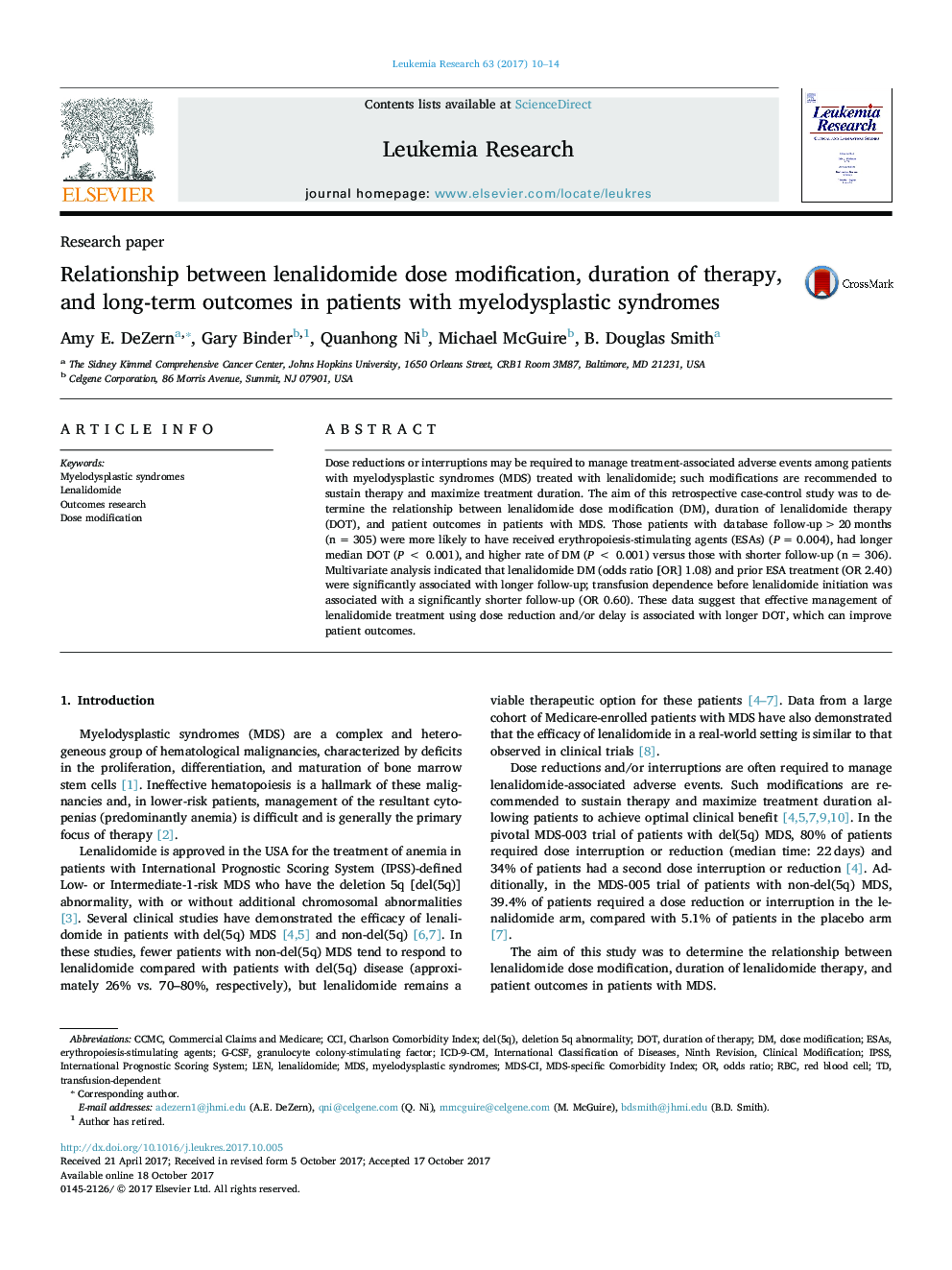| Article ID | Journal | Published Year | Pages | File Type |
|---|---|---|---|---|
| 8453412 | Leukemia Research | 2017 | 5 Pages |
Abstract
Dose reductions or interruptions may be required to manage treatment-associated adverse events among patients with myelodysplastic syndromes (MDS) treated with lenalidomide; such modifications are recommended to sustain therapy and maximize treatment duration. The aim of this retrospective case-control study was to determine the relationship between lenalidomide dose modification (DM), duration of lenalidomide therapy (DOT), and patient outcomes in patients with MDS. Those patients with database follow-up >20 months (n = 305) were more likely to have received erythropoiesis-stimulating agents (ESAs) (P = 0.004), had longer median DOT (P < 0.001), and higher rate of DM (P < 0.001) versus those with shorter follow-up (n = 306). Multivariate analysis indicated that lenalidomide DM (odds ratio [OR] 1.08) and prior ESA treatment (OR 2.40) were significantly associated with longer follow-up; transfusion dependence before lenalidomide initiation was associated with a significantly shorter follow-up (OR 0.60). These data suggest that effective management of lenalidomide treatment using dose reduction and/or delay is associated with longer DOT, which can improve patient outcomes.
Keywords
CCMCtransfusion-dependentdel(5q)ESASIPSSCCIICD-9-CMMDSRBCDose modificationLENMyelodysplastic syndromesInternational Prognostic Scoring SystemCharlson Comorbidity Indexinternational classification of diseases, ninth revision, clinical modificationErythropoiesis-stimulating agentsgranulocyte colony-stimulating factorG-CSFLenalidomideDuration of therapyOutcomes researchodds ratioDOTred blood cell
Related Topics
Life Sciences
Biochemistry, Genetics and Molecular Biology
Cancer Research
Authors
Amy E. DeZern, Gary Binder, Quanhong Ni, Michael McGuire, B. Douglas Smith,
